6. The Pianist (2002) – Roman Polanski
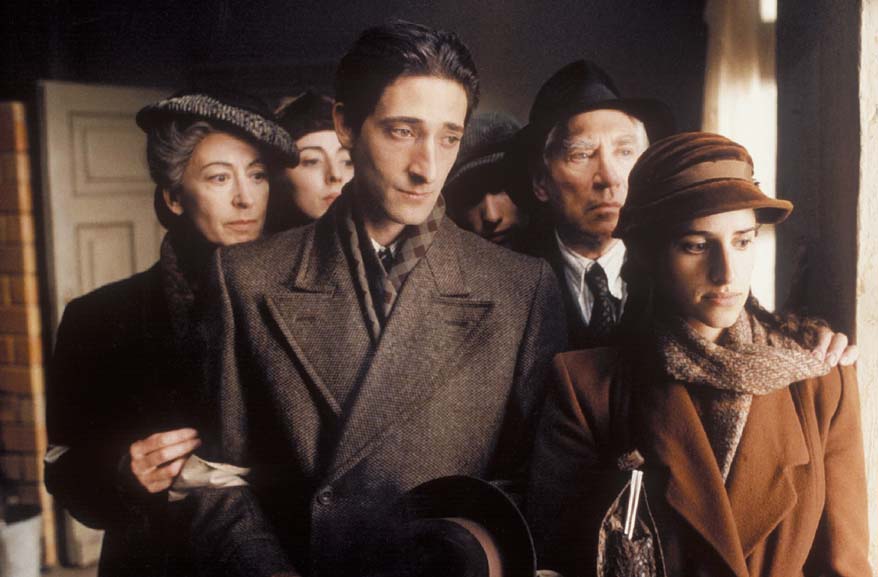
Roman Polanski has lived a life with many tragedies, many sins, and I’m sure many regrets. Polanski certainly did things that he shouldn’t be forgiven for. But it’s important for us to understand who he is and where he came from. Polanski’s mother was sadly a victim of the holocaust, tragically being one of millions who was killed in the gas chambers.
For Polanski this film was a catharsis for him, a way to try and mend the damage that had been done so many decades prior. Sadly it isn’t something that has mended his heart. Polanski has stated the only thing that will ever bring closure is his inevitable death.
What’s most interesting about “The Pianist” is that in most cases with stories of the holocaust we would look upon the experience with a sense of survival and accomplishment, that the people we’ve followed have survived the worst of humanity. But the survival in this film is never one that feels like a victory, how can it when everyone you’ve loved has died? A few decades later Polanski’s wife was a victim of the Manson family.
It seems like Polanski has been on the receiving end of life’s worst outcomes, losing so many he’s loved in the worst of circumstances. Does any of this excuse what he inevitably did, no. But it is a tragic life he’s spent living and sadly culminated in the making of this film. If Polanski could go back and do everything differently I’m sure he would because sometimes being born to make something, as great as it might be, isn’t always a life worth living.
7. Pulp Fiction (1994) – Quentin Tarantino
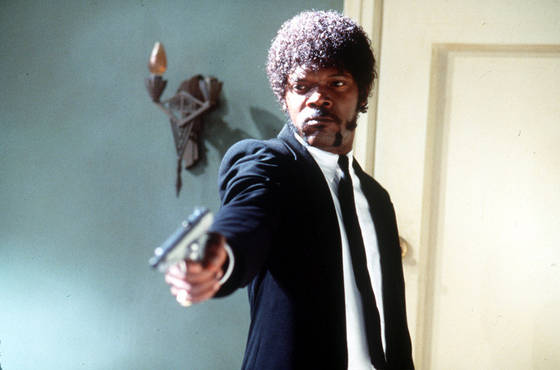
There are certain films out there that are an alchemy of time, cast, and art. One of the highest praises a film can ever receive is that it was made in a time and a manner in which it will never be duplicated. Quentin Tarantino’s “Pulp Fiction” is one of those films that comes along and can never happen twice. A film that flips the script, breaks the mold, and delivers a shot of adrenaline that is desperately needed.
Every piece that goes into “Pulp Fiction” is a piece in Tarantino’s band that goes ballistic, rocks out and tears up each instrument but could care less because they’re having so much damn fun doing it. Tarantino’s ability to rock out is extenuated by his ear for music and knowledge for pop culture. And when these people start talking, my god, there’s nothing like it.
Tarantino clearly has an ear for words wherever he goes, you can tell he eavesdrops on conversations and knows exactly how to put that to good use. This was a love letter to the pulp magazines and the years of sitting behind a desk at a video rental store that Tarantino spent so much of his life living.
Quentin is a true lover of films, probably more so than anyone else, and with “Pulp Fiction” he made an emphatic statement on what movies were doing wrong, what they should be doing, and where they need to be moving going forward. Because that’s what a true lover of this art form does.
8. Schindler’s List (1993) – Steven Spielberg
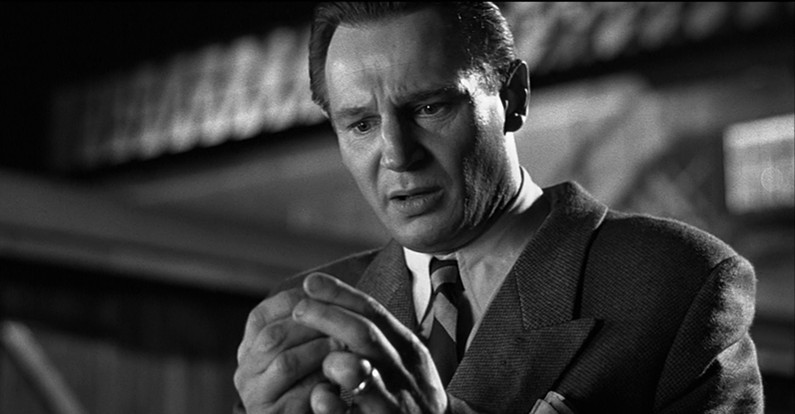
During my most recent viewing of “Schindler’s List” this past December, 2018 in honor of the films 25th Anniversary it opened with a special introduction by Steven Spielberg. He mentioned how one of his hopes with the film was to show how good conquers evil and racism is a barrier for us to hurdle through, something he holds onto to this very day.
Spielberg’s masterpiece is an examination of one story set in the Holocaust but uses it to examine a larger world surrounding it. In 1993 the New York Times did a report in which they documented that over 1/3 of adult Americans didn’t believe that the Holocaust even happened, much of this to me is a result of many people wanting to forget about such a hideous act in which, at the time, 1 out of every 3 Jews in the world were killed.
“Schindler’s List” was a passion project for director Steven Spielberg, one that he struggled to cope with from the very beginning. Growing up as a Jewish man himself, Spielberg knew it was his moral obligation to tell this story, and one that to this day he has never accepted a penny of its profit because he considers it “blood money”.
Spielberg has had a trademark style and tone throughout his entire career, a warm hearted family man with a knack for adventure. With that in mind I knew Spielberg would be able to capture the heroic nature of this story but what I think many weren’t prepared for was how effective he would be at conveying the horror of it all. He doesn’t pull punches in showing the true Nazi evil that occurred, there are many hard moments of soldiers having guns right up to someone’s head and shooting them.
Spielberg once recalled how he would go back to editing and re-watching the footage they shot asking “did I really shoot that?” Yes he did, and it’s good that he did. There’s no reason to pull back on anything, show it for exactly what it was.
9. Tokyo Story (1953) – Yasujirô Ozu
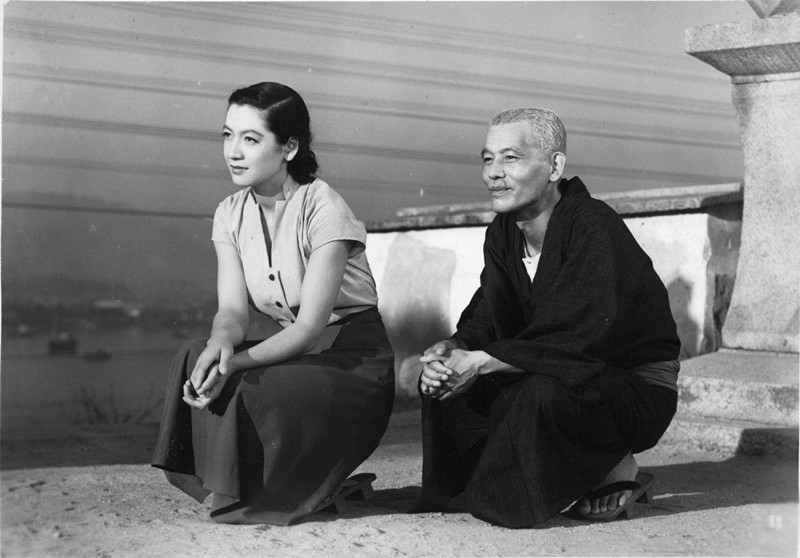
Roger Ebert once said “Ozu is not only a great director but a great teacher, and after you know his films, a friend.” Ozu was the filmmaker’s equivalent to the old saying “with age comes wisdom”. With no other director do I feel there’s a simpler, therefore more profound, eloquence in his rhythms.
“Tokyo Story” is a film built entirely off of human lives, the kind of lives so universal and all-encompassing that it transcends its geography and time. It seems that family is what always took the most importance to Ozu in his life, growing up in a time of industrial revolution as families were becoming more and more distant from one another. Ozu kept his morals close to him through and through, thus leading to him being possibly the greatest spiritual leader in cinema.
“Tokyo Story” is as simple as you can possibly get but the lyricism in its beauty comes from the small moments we take for granted. When the grandkids are introduced to their grandparents for the first time they quickly run away, the grandparents start laughing at the children’s shyness. In this one moment Ozu shows us how generations grow apart from each other, how the young turn a blind eye to the old without even realizing it.
It’s not that we don’t have time to spend with our loved ones but that we arrange our lives in such a way where we choose to distract ourselves with other matters so we don’t have to confront the bigger questions about life, death, love, and everything in-between. Ozu was a wonderful teacher in the world of cinema and once you understand his films, he really is a friend.
10. The Tree of Life (2011) – Terrence Malick
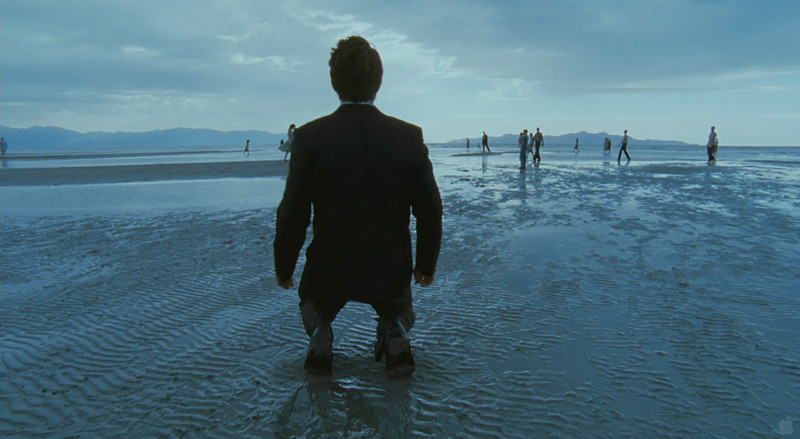
Terrence Malick throughout his career has partaken in nothing less than exploring the grand concepts that are larger than life. His method is told in visual poetry, showing images and allowing the underlying meaning and story to develop naturally out of what the emotion of it means to us. It feels like Malick’s entire life has built up to this film and the end result is an extravagant experience that reaches across life, time, and space.
Malick was born and raised in Waco, Texas. At an early age Malick’s younger brother, Larry, died, apparently committing suicide. Malick went on to earn his degree in philosophy and transitioned into film and the rest is history. Everything that is Terrence Malick is personified in this crowning achievement in which his life, his religion, his philosophy, his family, and his art are combined into one.
The film largely takes place in Waco, where Malick grew up, and the family is very symbolic of his own. Right down to the brother that tragically dies. It leaps ahead into the future where we see Malick’s representation of his adult life in the form of Sean Penn, a middle aged man working in a contemporary building finding himself in a Job like depression as he still feels depression for the loss of his brother. His depression is intertwined with his mother’s (Jessica Chastain) who left her faith after the death, asking God “what are we to you?”
For Malick this was him finally making peace and coming to grips with everything. Is it a coincidence that before this Malick was making a film once every decade and now he’s making something every year? I think whatever void was in Malick throughout his life he was finally able to release with this very reflective, cathartic experience.